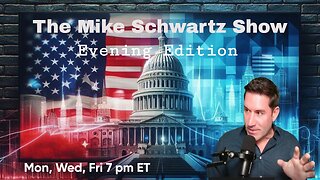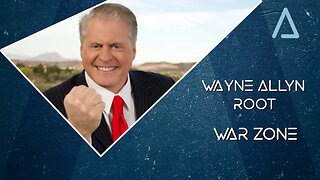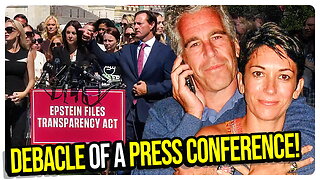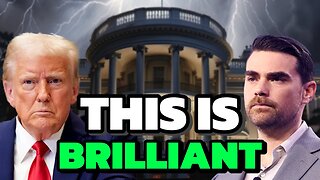Premium Only Content

Muslim vs non Muslim beard in islam.#shorts#short #viral#Allah#viral#status
Muslim vs non Muslim beard in islam.#shorts#short #viral#Allah#viral#status
In Islam, both Muslim and non-Muslim men are allowed to grow beards if they choose to do so. However, the significance and reasons for growing a beard may differ between the two groups.
For Muslim men, growing a beard is often considered a religious practice and a way to emulate the Prophet Muhammad, who is believed to have had a beard. It is seen as a sign of piety and adherence to Islamic tradition. The length and style of the beard can vary among Muslim men, and there is no strict requirement in terms of beard length.
Non-Muslim men who choose to grow beards may do so for a variety of reasons, including personal preference, fashion, cultural traditions, or simply as a style choice. The significance of the beard for non-Muslims is not related to religious beliefs.
It's important to note that wearing or not wearing a beard does not determine one's faith or religious identity. People of various religious backgrounds and beliefs can have beards or not have them based on their personal choices.In Islam, both Muslim and non-Muslim men are allowed to grow beards if they choose to do so. However, the significance and practice of growing a beard may vary among individuals and cultures.
For many Muslim men, growing a beard is seen as a religious obligation and a way to follow the Sunnah (the teachings and practices of the Prophet Muhammad, peace be upon him). It is considered a sign of masculinity and adherence to Islamic traditions. The length of the beard is a matter of personal choice and interpretation, and it can vary among individuals.
Non-Muslim men may also grow beards for various reasons, such as personal preference, fashion, or cultural significance. Beards have different meanings and connotations in different cultures and religions worldwide.
Ultimately, whether a beard is grown by a Muslim or a non-Muslim, its significance is a matter of personal choice and belief, and it should be respected as such. Islam emphasizes individual freedom in matters of personal appearance, as long as it is within the boundaries of Islamic principles and values.In Islam, both Muslim and non-Muslim men are allowed to grow beards if they choose to do so. However, the significance and practice of growing a beard may vary among individuals and cultures.
For many Muslim men, growing a beard is seen as a religious obligation and a way to follow the Sunnah (the teachings and practices of the Prophet Muhammad, peace be upon him). It is considered a sign of masculinity and adherence to Islamic traditions. The length of the beard is a matter of personal choice and interpretation, and it can vary among individuals.
Non-Muslim men may also grow beards for various reasons, such as personal preference, fashion, or cultural significance. Beards have different meanings and connotations in different cultures and religions worldwide.
Ultimately, whether a beard is grown by a Muslim or a non-Muslim, its significance is a matter of personal choice and belief, and it should be respected as such. Islam emphasizes individual freedom in matters of personal appearance, as long as it is within the boundaries of Islamic principles and values.In Islam, both Muslim and non-Muslim men are allowed to grow beards if they choose to do so. However, the significance and practice of growing a beard may vary among individuals and cultures.
For many Muslim men, growing a beard is seen as a religious obligation and a way to follow the Sunnah (the teachings and practices of the Prophet Muhammad, peace be upon him). It is considered a sign of masculinity and adherence to Islamic traditions. The length of the beard is a matter of personal choice and interpretation, and it can vary among individuals.
Non-Muslim men may also grow beards for various reasons, such as personal preference, fashion, or cultural significance. Beards have different meanings and connotations in different cultures and religions worldwide.
Ultimately, whether a beard is grown by a Muslim or a non-Muslim, its significance is a matter of personal choice and belief, and it should be respected as such. Islam emphasizes individual freedom in matters of personal appearance, as long as it is within the boundaries of Islamic principles and values.In Islam, both Muslim and non-Muslim men are allowed to grow beards if they choose to do so. However, the significance and practice of growing a beard may vary among individuals and cultures.
For many Muslim men, growing a beard is seen as a religious obligation and a way to follow the Sunnah (the teachings and practices of the Prophet Muhammad, peace be upon him). It is considered a sign of masculinity and adherence to Islamic traditions. The length of the beard is a matter of personal choice and interpretation, and it can vary among individuals.
Non-Muslim men may also grow beards for various reasons, such as personal preference, fashion, or cultural significance. Beards have different meanings and connotations in different cultures and religions worldwide.
Ultimately, whether a beard is grown by a Muslim or a non-Muslim, its significance is a matter of personal choice and belief, and it should be respected as such. Islam emphasizes individual freedom in matters of personal appearance, as long as it is within the boundaries of Islamic principles and values.In Islam, both Muslim and non-Muslim men are allowed to grow beards if they choose to do so. However, the significance and practice of growing a beard may vary among individuals and cultures.
For many Muslim men, growing a beard is seen as a religious obligation and a way to follow the Sunnah (the teachings and practices of the Prophet Muhammad, peace be upon him). It is considered a sign of masculinity and adherence to Islamic traditions. The length of the beard is a matter of personal choice and interpretation, and it can vary among individuals.
Non-Muslim men may also grow beards for various reasons, such as personal preference, fashion, or cultural significance. Beards have different meanings and connotations in different cultures and religions worldwide.
Ultimately, whether a beard is grown by a Muslim or a non-Muslim, its significance is a matter of personal choice and belief, and it should be respected as such. Islam emphasizes individual freedom in matters of personal appearance, as long as it is within the boundaries of Islamic principles and values.
-
 LIVE
LIVE
The Jimmy Dore Show
1 hour agoTrump’s HUGE About-Face on the COVID Vaxx! Epstein Victims Demand Justice In DC! w/ Mary Holland
5,642 watching -
 LIVE
LIVE
The Mel K Show
1 hour agoLive Q&A With Mel K 9-3-25
449 watching -
 LIVE
LIVE
Quite Frankly
5 hours agoOccult Pop Culture & The Anne Heche Mystery | Christopher Knowles 9/3/25
471 watching -
 LIVE
LIVE
The Mike Schwartz Show
2 hours agoTHE MIKE SCHWARTZ SHOW Evening Edition 09-03-2025
4,470 watching -
 1:06:42
1:06:42
TheCrucible
2 hours agoThe Extravaganza! EP: 31 (9/03/25
67K1 -
 LIVE
LIVE
Wayne Allyn Root | WAR Zone
6 hours agoWAR Zone LIVE | 3 SEPTEMBER 2025
106 watching -
 1:28:57
1:28:57
Redacted News
3 hours agoBREAKING! Putin's DEVASTATING news for Europe | Secret UFO Space Base in Huntsville | Redacted Live
85.8K99 -
 1:17:49
1:17:49
vivafrei
6 hours agoEpstein Press Conference DEBACLE! Missing Minute FOUND? Canada Continues to Fall! & MORE!
85.6K68 -
 29:30
29:30
Stephen Gardner
3 hours ago🟢YES! Trump’s Doing It! Ben Shapiro UNLEASHES on Democrat STUPIDITY!
34.4K22 -
 LIVE
LIVE
Dr Disrespect
7 hours ago🔴LIVE - DR DISRESPECT - METAL EDEN - NEW 2025 SCI-FI FPS LAUNCH STREAM
937 watching